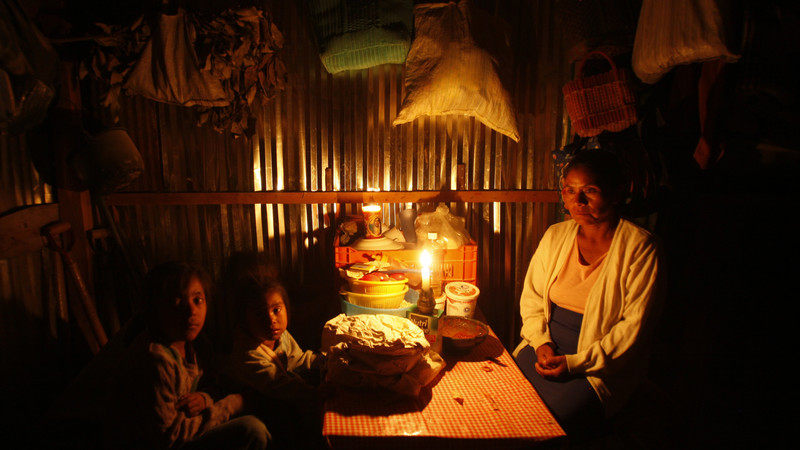Energy poverty is a critical issue facing Nigeria, a nation with vast natural resources yet limited by poor access to reliable and affordable energy. This paradox has far-reaching consequences for the country’s development, affecting everything from economic growth and industrialization to education and healthcare. Addressing energy poverty is essential for Nigeria to achieve its full potential, and companies like Rhinobay Energy are developing solutions that can bridge the energy gap and foster sustainable development.
Understanding Energy Poverty in Nigeria
Energy poverty refers to the lack of access to modern energy services, including electricity and clean cooking facilities. In Nigeria, the scale of energy poverty is staggering. According to the World Bank, nearly 85 million Nigerians, approximately 43% of the population, do not have access to grid electricity. Even those who are connected to the grid often experience unreliable power supply, with frequent blackouts and power rationing being the norm.
The implications of energy poverty are profound. Without reliable electricity, businesses struggle to operate efficiently, healthcare facilities cannot provide adequate services, and educational institutions are unable to offer quality learning environments. Additionally, the reliance on traditional energy sources like firewood and kerosene for cooking contributes to environmental degradation and poses significant health risks, particularly for women and children.
The Economic Impact of Energy Poverty
Energy poverty is a significant barrier to economic development in Nigeria. Without reliable energy, industries cannot function optimally, leading to reduced productivity and increased operational costs. Many businesses, especially small and medium-sized enterprises (SMEs), rely on diesel generators to supplement the inconsistent power supply, driving up their expenses and limiting their growth potential.
This lack of reliable energy also stifles innovation and industrialization, key drivers of economic diversification and job creation. As a result, Nigeria remains heavily dependent on oil exports, making its economy vulnerable to fluctuations in global oil prices. Addressing energy poverty is therefore crucial for Nigeria to diversify its economy, attract foreign investment, and achieve sustainable economic growth.
Social and Environmental Consequences
Beyond the economic impact, energy poverty also has significant social and environmental consequences. In rural areas, where energy poverty is most acute, the lack of electricity limits access to critical services like education and healthcare. Schools without electricity struggle to provide basic educational resources, and students are often unable to study after dark. Healthcare facilities without reliable power cannot operate essential medical equipment, compromising the quality of care and putting lives at risk.
Environmental degradation is another consequence of energy poverty. The widespread use of firewood and charcoal for cooking leads to deforestation, contributing to climate change and loss of biodiversity. Additionally, the reliance on kerosene and other polluting fuels contributes to indoor air pollution, which is a major cause of respiratory diseases in Nigeria.
Rhinobay Energy’s Role in Combating Energy Poverty
Rhinobay Energy, a leading energy company in West Africa, is committed to addressing energy poverty in Nigeria through innovative and sustainable energy solutions. The company recognizes that solving the energy crisis is key to unlocking Nigeria’s development potential and is actively working to expand access to clean, reliable, and affordable energy across the country.
1. Expanding Access to Solar Energy
One of Rhinobay Energy’s primary strategies for combating energy poverty is the expansion of solar energy solutions. Solar power is a viable and sustainable alternative for many of Nigeria’s off-grid communities. By harnessing the abundant sunlight in the country, Rhinobay Energy is providing solar home systems, mini-grids, and solar-powered devices that offer reliable electricity to households and businesses in remote areas.
These solar solutions not only improve the quality of life for millions of Nigerians but also contribute to environmental sustainability by reducing dependence on fossil fuels. By providing affordable and scalable solar energy options, Rhinobay Energy is helping to close the energy access gap and promote sustainable development in Nigeria.
2. Promoting the Use of Clean Cooking Technologies
In addition to expanding access to electricity, Rhinobay Energy is also focused on promoting clean cooking technologies. The company offers Liquefied Petroleum Gas (LPG) solutions as a cleaner alternative to traditional biomass fuels like firewood and charcoal. By encouraging the adoption of LPG for cooking, Rhinobay Energy is helping to reduce indoor air pollution, protect the environment, and improve the health of millions of Nigerians, particularly women and children.
3. Supporting Energy Efficiency and Grid Reliability
Rhinobay Energy is also committed to improving energy efficiency and grid reliability in Nigeria. The company is investing in modern energy infrastructure, including smart grids and energy storage systems, to enhance the stability and efficiency of the national grid. By reducing energy losses and improving the management of electricity supply, Rhinobay Energy is helping to ensure that more Nigerians have access to reliable power.
The Path Forward: A Call to Action
Addressing energy poverty in Nigeria requires a concerted effort from all stakeholders, including the government, private sector, and international partners. Rhinobay Energy is leading by example, demonstrating that with the right investments and strategies, it is possible to expand energy access, reduce poverty, and drive sustainable development.
However, the fight against energy poverty cannot be won by one company or organization alone. It requires collaboration, innovation, and a commitment to putting people at the center of energy policies and projects. The Nigerian government must continue to create an enabling environment for investment in the energy sector, while also implementing policies that promote the adoption of renewable energy and clean cooking technologies.
International organizations and financial institutions also have a role to play by providing funding and technical assistance to support energy access initiatives. At the same time, communities must be engaged in the planning and implementation of energy projects to ensure that they meet local needs and are sustainable in the long term.
Building a Brighter Future with Rhinobay Energy
Energy poverty is one of the most significant challenges facing Nigeria today, but it is also an opportunity for innovation and growth. By expanding access to clean, reliable, and affordable energy, Nigeria can unlock its full development potential, improve the quality of life for its citizens, and contribute to global efforts to combat climate change.
Rhinobay Energy is at the forefront of this transformation, providing innovative energy solutions that address the root causes of energy poverty and support sustainable development. Through its commitment to expanding solar energy, promoting clean cooking technologies, and improving grid reliability, Rhinobay Energy is helping to build a brighter and more sustainable future for Nigeria.
As the country continues to navigate its energy challenges, the role of companies like Rhinobay Energy will be crucial in driving progress and ensuring that all Nigerians have access to the energy they need to thrive.















Leave a Reply